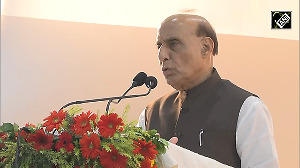Imagine being given a calendar for 2004 with some of the major dates highlighted with asterisks.
You might not want to rely on it to book a holiday. Easter? Should be in April, but may be moved to June. August Bank Holiday? Could yet be cancelled.
The 17 race calendar that Formula One published last week sounded a bit like that, peppered as it was with asterisks and footnotes.
It listed new races in China and Bahrain, a provisional return to Belgium after a year's absence, and no space for Austria or Canada.
Or so it seemed. But this being Formula One, with an insatiable appetite for rumour and suspicion, paddock people immediately began to speculate on which races they would really be attending.
Some felt that Canada still has a chance, but that it might be unwise to bank too heavily on being at Imola in June or France in July.
Others thought another race could be added.
"What is [F1 boss] Bernie [Ecclestone] up to? I wouldn't necessarily conclude it's the finished, final version," said team boss Frank Williams in Monza at the weekend.
"I can tell you we've had a lot of unhappy letters from people who pay us to represent them on race days about the cancellation of Montreal," he added. "Seriously unhappy letters. There might be an 18th race."
Although Williams feared Montreal's chances of returning are slim, other F1 sources disagreed.
France, on July 11, remains subject to contract and has a ban on tobacco advertising similar to the one that has caused Canada's problems.
Most teams with cigarette sponsors would accept, so the thinking went, the replacement of one non-tobacco race with another -- particularly when Montreal is a cosmopolitan city and Magny-Cours a village in rural France.
The grandprix.com Web site suggested that Imola could then take France's July slot with Canada given back its regular June position. But whether Renault, also backed by tobacco, would accept losing their home race remains to be seen.
Bahrain and China are subject to circuit approval while Belgium depends on legislation to overcome a local anti-tobacco advertising law.
There are no guarantees, although China, dropped from a calendar before when a Beijing track failed to come up to scratch, is far too important a market to be passed over again.
"China is not going to be some sort of gushing financial resource, but it is definitely an emerging market and very, very important to some of the European companies that we already have commercial agreements with," said McLaren's Ron Dennis.
"It strengthens our ability to at least maintain and sometimes increase investment from existing sponsors. The same will apply to India and in some instances Turkey and Bahrain."
The truth is that the calendar is a moving minefield.
It aims to avoid clashes with other sports, although the British Grand Prix is the same day as the Euro 2004 soccer final and the Wimbledon men's singles final, and take into account local weather conditions and logistics.
Uncertainty is good for nobody.
"You wonder how anybody has been selling tickets for next year, not fully knowing the dates," said Martin Brundle, television commentator and chairman of Silverstone's owners, the British Racing Drivers' Club.
"It really compromises the promoters. I know from a few years back at Silverstone, it costs a quarter of a million pounds to reprint tickets for another date.
"It really looks bad for F1 compared to, say, Wimbledon, which I'm sure has its dates fixed for several years to come."
Wimbledon recently confirmed the dates for 2005. Silverstone, its future regularly questioned, cannot be sure that Britain will still have a race by then.







